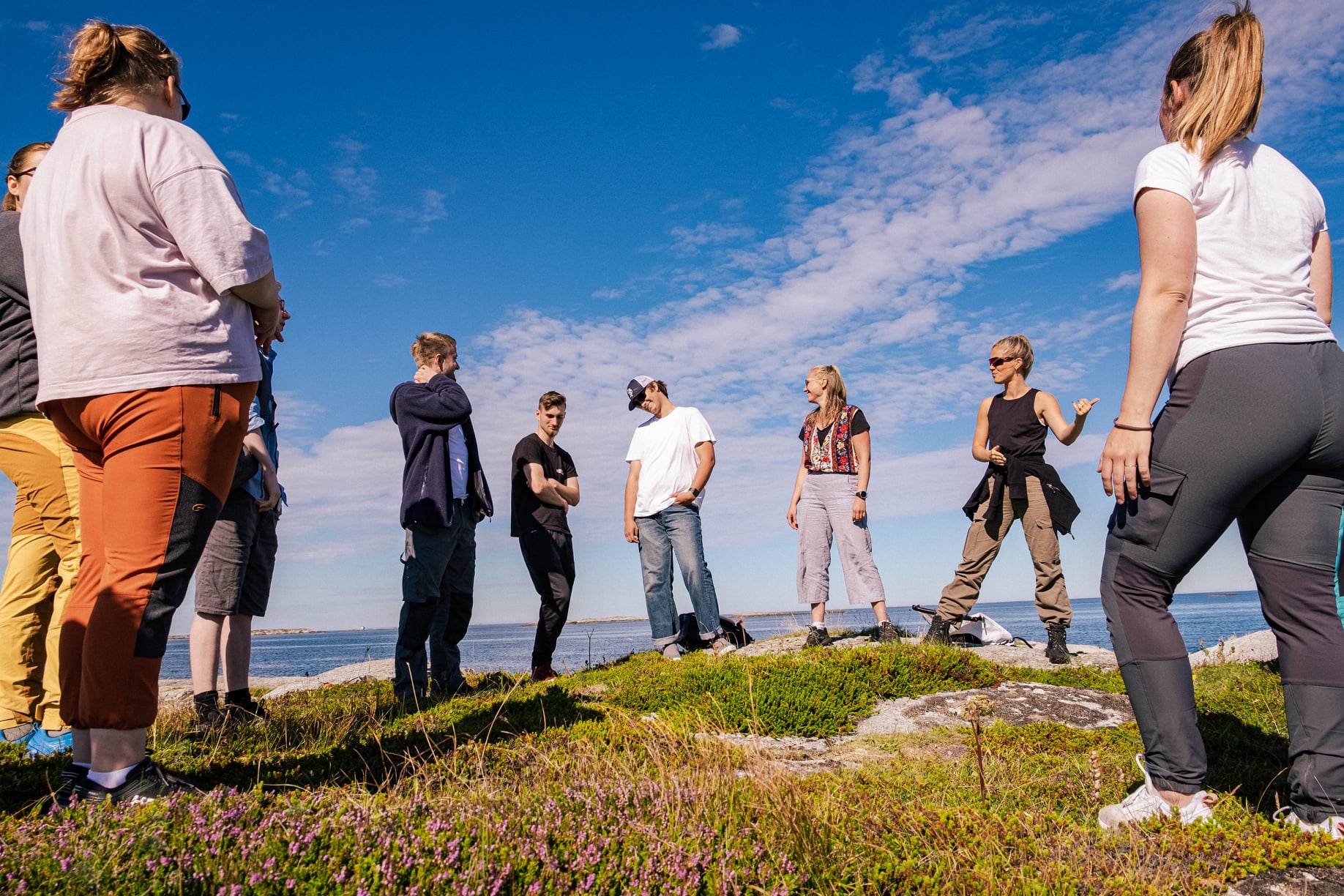COMMON SUBJECTS
In addition to our line subjects, we also put focus on some common subjects. These are important for the fundamental values and the understanding of society, that Øyrekka Folk High School wishes to convey.

We grow as a person when we are together, and everyone must contribute to create a safe and good school environment. During the year we have several common subjects, where we aim to challenge and guide you, as well as create joy and togetherness. A good experience becomes greater when you share it with others!
- Morning assembly: every morning in the assembly room
- Physical education: trail running, ball games, exercising in the gym or playing in the pool. We find something to suit everyone!
- Common subjects: Everything from democracy education, coastal and cultural history to ethics and philosophy, mental health and personal growth. Dissemination of the basic values and the social understanding that Øyrekka Folk High School stands for!
- Saturday seminars: External speakers, games and activities, and field trips is among the things we do on Saturdays!
- Project days and project weeks
- Lifesaving and first aid: We spend a lot of time out in boats and along the shoreline. In order for the school year to be safe, everyone must undergo some first aid training.
- Room and dorm cleaning: We start the week with room cleaning on Mondays and end the week with house cleaning in the dorm on Fridays.
- Kitchen duty: During the year, all students take turns with kitchen duty.
Democracy
Is liberal democracy still the best way to organize society? Is it sufficiently effective in meeting the challenges of our time? Keywords: Respect for differences of opinion and basic understanding of society.
Early democracy was the democracy of the ruling elite—but for centuries it prevented the emergence of institutionalized autocracy. Modern democracy emerged with the Enlightenment period. The great divide in Norwegian history came with the National Assembly at Eidsvoll in 1814. Then we got laws on local self-government in the 1830s, parliamentarism in 1894 and full secession from Sweden and the establishment of an independent Norway in 1905.
Democracy has been regarded as a matter of course in Norway throughout the post-war period, but we see that democracy is under increasing pressure in parts of the world. More than 25 percent of the world's population lives in countries where democracy is in decline, while far more live in countries considered authoritarian or "hybrid" regimes. We also see similar developments in parts of Europe.
Debate and exchange of opinions, freedom of expression and freedom of religion are the pillars of democracy. Here, too, we see challenges: Where do we draw the line for acceptable statements and differences of opinion? How does "fake news" affect the foundations of a healthy society where there is acceptance of differing opinions? Are online harassment, harassment and accusations – and accusations of abuse and the fear of crossing the boundaries of others – a threat to free debate?
These are topics we discuss throughout the school year, largely with the help of external speakers with backgrounds from politics, media and organizations.
